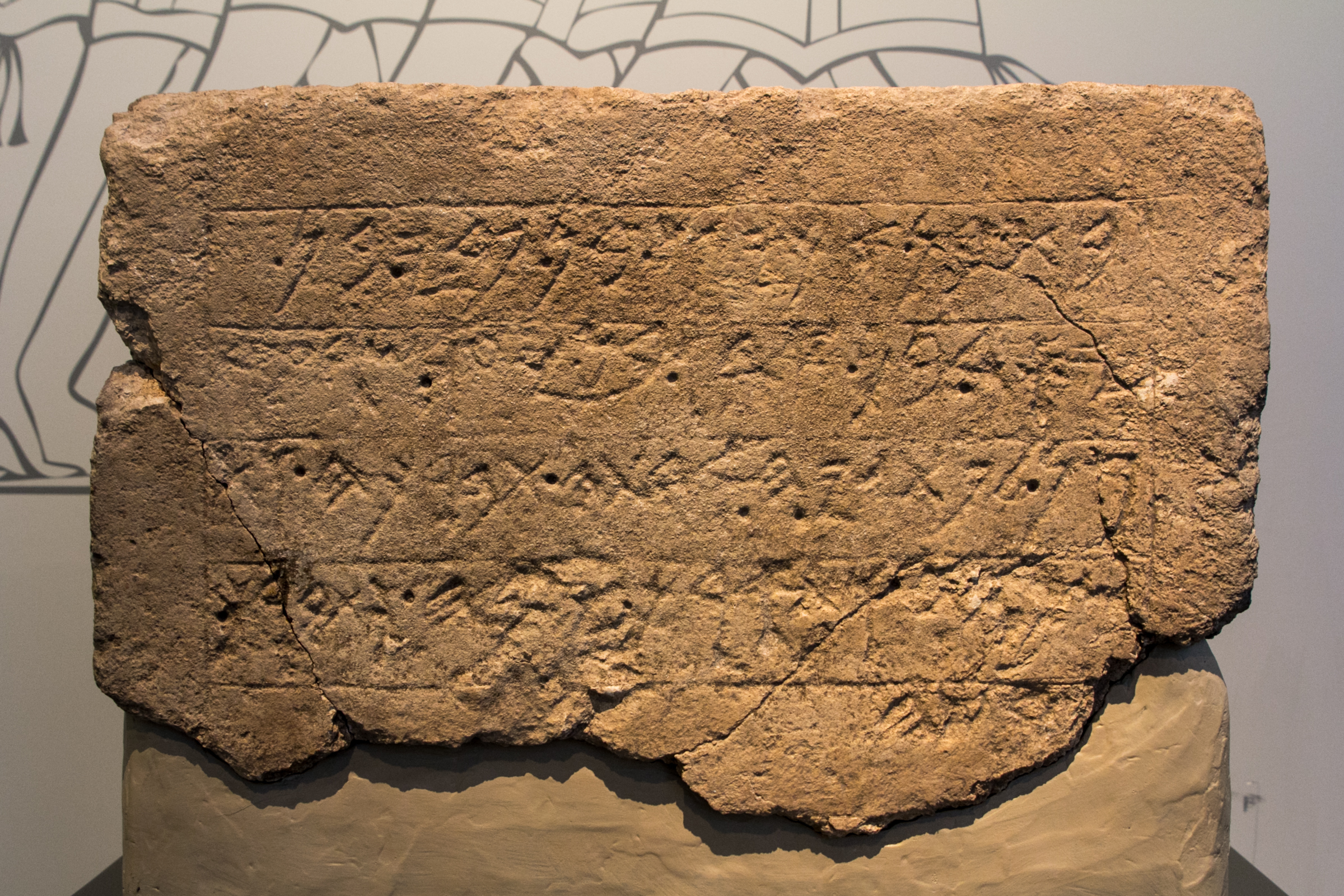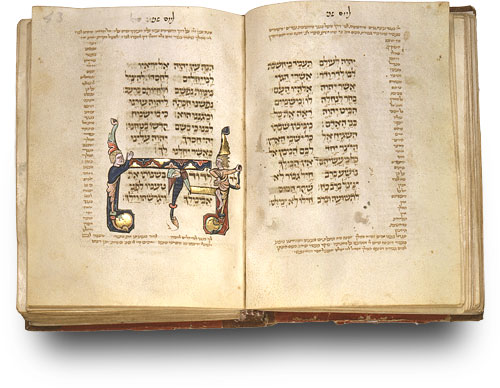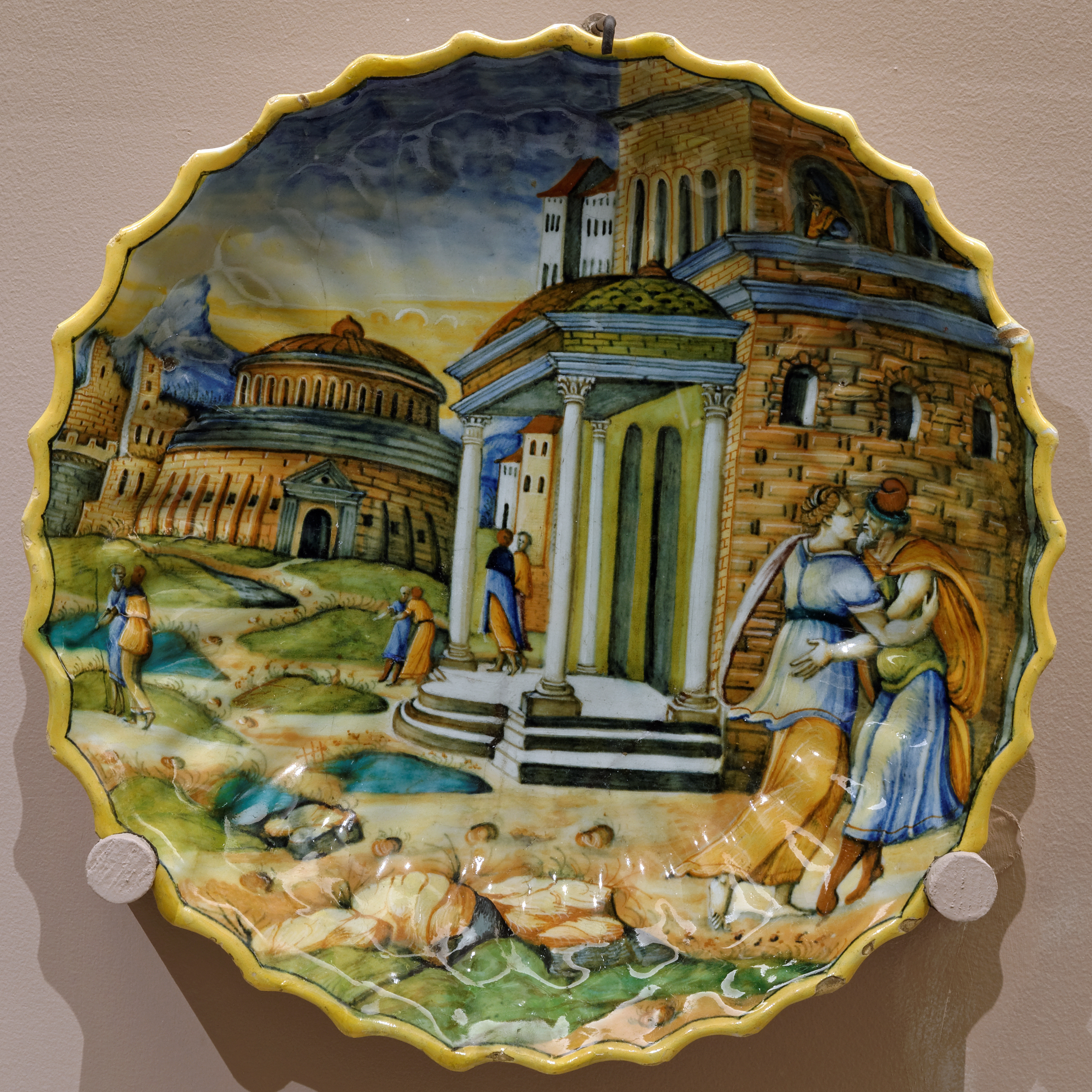|
Achish
Achish ( he, אָכִישׁ ''ʾāḵīš'', Philistine: 𐤀𐤊𐤉𐤔 *''ʾāḵayūš'', Akkadian: 𒄿𒅗𒌑𒋢 ''i-ka-ú-su'') is a name used in the Hebrew Bible for two Philistine rulers of Gath. It is perhaps only a general title of royalty, applicable to the Philistine kings. The two kings of Gath, which is identified by most scholars as Tell es-Safi, are: * The monarch, described as "Achish the king of Gath", with whom David sought refuge when he fled from Saul. He is called Abimelech (meaning "father of the king") in the superscription of Psalm 34. It was probably this same king, or his son with the same name, described as "Achish, the son of Maoch", to whom David reappeared a second time at the head of a band of 600 warriors. The king assigned David to Ziklag, whence he carried on war against the surrounding tribes whilst lying to Achish that he was waging war against Israel to garner his support. Achish had great confidence in the valour and fidelity of David, but ... [...More Info...] [...Related Items...] OR: [Wikipedia] [Google] [Baidu] |
David
David (; , "beloved one") (traditional spelling), , ''Dāwūd''; grc-koi, Δαυΐδ, Dauíd; la, Davidus, David; gez , ዳዊት, ''Dawit''; xcl, Դաւիթ, ''Dawitʿ''; cu, Давíдъ, ''Davidŭ''; possibly meaning "beloved one". was, according to the Hebrew Bible, the third king of the United Kingdom of Israel. In the Books of Samuel, he is described as a young shepherd and harpist who gains fame by slaying Goliath, a champion of the Philistines, in southern Canaan. David becomes a favourite of Saul, the first king of Israel; he also forges a notably close friendship with Jonathan, a son of Saul. However, under the paranoia that David is seeking to usurp the throne, Saul attempts to kill David, forcing the latter to go into hiding and effectively operate as a fugitive for several years. After Saul and Jonathan are both killed in battle against the Philistines, a 30-year-old David is anointed king over all of Israel and Judah. Following his rise to power, David ... [...More Info...] [...Related Items...] OR: [Wikipedia] [Google] [Baidu] |
Ekron Inscription
The Ekron Royal Dedicatory Inscription, or simply the Ekron inscription, is a royal dedication inscription found in its primary context in the ruins of a temple during the 1996 excavations of Ekron.Gitin, Dothan, and Naveh, 1997, p. 1 It is known as Kanaanäische und Aramäische Inschriften, KAI 286. It is incised on a rectangular-shaped limestone block, has five lines and 71 characters, and mentions Ekron, thus confirming the identification of the site, as well as five of its rulers, including Ikausu (Achish), son of Padi, who built the sanctuary. Padi and Ikausu are known as kings of Ekron from the late 8th- and 7th-century Neo-Assyrian Royal Annals.Gitin, Seymour (2003), Israelite and Philistine Cult and the Archaeological Record, in ''Symbiosis, Symbolism, and the Power of the Past'', p. 287, "Two of the five names of city's rulers mentioned in the inscription - Padi and Ikausu - appear in the Neo-Assyrian Annals as kings of ‘amqar(r)una, that is, Ekron, an Assyrian vassal c ... [...More Info...] [...Related Items...] OR: [Wikipedia] [Google] [Baidu] |
King David (film)
''King David'' is a 1985 American Biblical epic film about the life of David, the second King of the Kingdom of Israel, as recounted in the Hebrew Bible. The film is directed by Bruce Beresford, written by Andrew Birkin and James Costigan, and stars Richard Gere in the title role. The ensemble cast includes Edward Woodward, Alice Krige, Denis Quilley, Cherie Lunghi, Hurd Hatfield, John Castle, Jean-Marc Barr, Christopher Malcolm, and Gina Bellman. ''King David'' was released by Paramount in the United States on March 29, 1985, while in other countries it was released in 1986 and 1987. Upon release, the film received mostly negative reviews for its screenplay writing, pace, some of the acting and the action sequences. However, Gere's performance and the cinematography were praised. In addition to being a critical failure, the film was also a box-office failure, grossing $5.9 million worldwide against its $21 million production budget. Where to Watch the show * Prime Video Plo ... [...More Info...] [...Related Items...] OR: [Wikipedia] [Google] [Baidu] |
Ziklag
Ziklag ( he, צִקְלַג) is the biblical name of a town that was located in the Negev region in the south-west of what was the Kingdom of Judah. It was a provincial town within the Philistine kingdom of Gath when Achish was king. Its exact location has not been identified with any certainty. Identification At the end of the 19th century, both Haluza (by Wadi Asluj, south of Beersheba)Cheyne and Black, ''Encyclopedia Biblica'' and Khirbet Zuheiliqah (located north-west of Beersheba and south-southeast of Gaza city) had been suggested as possible locations. Khirbet Zuheiliqah was identified by Conder and Kitchener as the location on the basis of ''Ziklag'' being a corruption of ''Zahaliku'', whence also ''Zuheiliqah''. The more recently proposed identifications for Ziklag are: * Albrecht Alt (1883–1956) proposed Tel Halif/ Tell el-Khuweilifeh, just beside kibbutz Lahav, some northeast of Beersheba. Due to this identification, for some time Lahav was officially named Tzekleg ... [...More Info...] [...Related Items...] OR: [Wikipedia] [Google] [Baidu] |
Gath (city)
Gath or Gat ( he, גַּת, translit=Gaṯ, lit=wine press; la, Geth, Philistine: 𐤂𐤕 *''Gīt''), often referred to as Gath of the Philistines, was a major Philistine city and one of the five Philistine city-states during the Iron Age. It was located in northeastern Philistia, close to the border with Judah. Gath is often mentioned in the Hebrew Bible and its existence is confirmed by Egyptian inscriptions. Already of significance during the Bronze Age, the city is believed to be mentioned in the El-Amarna letters as Gimti/Gintu, ruled by the two Shuwardata and 'Abdi-Ashtarti. Another Gath, known as Ginti-kirmil (Gath of Carmel) also appears in the Amarna letters.Naʼaman, Nadav (2005), p207/ref> The site most favored as the location of Gath is the archaeological mound or tell known as Tell es-Safi in Arabic and Tel Zafit in Hebrew (sometimes written Tel Tzafit), located inside Tel Zafit National Park, but a stone inscription disclosing the name of the city has yet ... [...More Info...] [...Related Items...] OR: [Wikipedia] [Google] [Baidu] |
Philistine Kings
The Philistines ( he, פְּלִשְׁתִּים, Pəlīštīm; Koine Greek (LXX): Φυλιστιείμ, romanized: ''Phulistieím'') were an ancient people who lived on the south coast of Canaan from the 12th century BC until 604 BC, when their polity, after having already been subjugated for centuries by the Neo-Assyrian Empire, was finally destroyed by King Nebuchadnezzar II of the Neo-Babylonian Empire. After becoming part of his empire and its successor, the Persian Empire, they lost their distinct ethnic identity and disappeared from the historical and archaeological record by the late 5th century BC.. The Philistines are known for their biblical conflict with the Israelites. Though the primary source of information about the Philistines is the Hebrew Bible, they are first attested to in reliefs at the Temple of Ramses III at Medinet Habu, in which they are called (accepted as cognate with Hebrew ); the parallel Assyrian term is , , or . Etymology The English term '' ... [...More Info...] [...Related Items...] OR: [Wikipedia] [Google] [Baidu] |
Akish
According to the Book of Ether in the Book of Mormon, Akish () was a prominent figure among the Jaredites. In the book's narrative, Akish first established secret combinations, nearly destroying their civilization. Omer was the legitimate king at the time, however, Omer's son Jared desired to take the throne earlier, and employed a scheme devised by his daughter (Omer's granddaughter) to do so. Jared's daughter danced for Akish who then desired to marry her. Jared agreed, on the condition that Akish "''will bring unto me the head of... the king.''" Akish gathered Jared's kinsmen, had them swear an oath to follow him and agree that anyone revealing the plan would be killed. (Ether 8:7, 14) Akish and those loyal to him took the kingdom from Omer. However, Omer and his children (who had not plotted against him) fled past the hill Shem to a place called Ablom along the seashore. Jared became the king, but Akish plotted against him too and had Jared himself killed. Etymology ''Akîsh' ... [...More Info...] [...Related Items...] OR: [Wikipedia] [Google] [Baidu] |
Philistines
The Philistines ( he, פְּלִשְׁתִּים, Pəlīštīm; Koine Greek (LXX): Φυλιστιείμ, romanized: ''Phulistieím'') were an ancient people who lived on the south coast of Canaan from the 12th century BC until 604 BC, when their polity, after having already been subjugated for centuries by the Neo-Assyrian Empire, was finally destroyed by King Nebuchadnezzar II of the Neo-Babylonian Empire. After becoming part of his empire and its successor, the Persian Empire, they lost their distinct ethnic identity and disappeared from the historical and archaeological record by the late 5th century BC.. The Philistines are known for their biblical conflict with the Israelites. Though the primary source of information about the Philistines is the Hebrew Bible, they are first attested to in reliefs at the Temple of Ramses III at Medinet Habu, in which they are called (accepted as cognate with Hebrew ); the parallel Assyrian term is , , or . Etymology The English term ... [...More Info...] [...Related Items...] OR: [Wikipedia] [Google] [Baidu] |
Philistine Language
The Philistine language () is the extinct language of the Philistines. Very little is known about the language, of which a handful of words survived as cultural loanwords in Biblical Hebrew, describing specifically Philistine institutions, like the ''seranim'', the "lords" of the Philistine five cities (" Pentapolis"), or the ''’argáz'' receptacle, which occurs in 1 Samuel 6 and nowhere else, or the title ''padî''. Classification To judge from inscriptions alone, it could appear that the Philistine language is simply part of the local Canaanite dialect continuum which includes Hebrew, Edomite, Moabite, Ekronite and Phoenician. For instance, the Ekron inscription, identifying the archaeological site securely as the Biblical Ekron, is the first connected body of text to be identified as Philistine, on the basis of its location. However, it is written in a Canaanite dialect similar to Phoenician and Hebrew. There is not enough information about the language of the Philistines ... [...More Info...] [...Related Items...] OR: [Wikipedia] [Google] [Baidu] |
Psalm 34
Psalm 34 is the 34th psalm of the Book of Psalms, beginning in English in the King James Version: "I will bless the LORD at all times: his praise shall continually be in my mouth." The Book of Psalms is part of the third section of the Hebrew Bible, and a book of the Christian Old Testament. In the slightly different numbering system used in the Greek Septuagint and Latin Vulgate translations of the Bible, this psalm is Psalm 33. In Latin, it is known as "Benedicam Dominum in omni tempore". Psalm 34 is attributed to David. The Psalm's subtitle, ''A Psalm of David when he pretended madness before Abimelech, who drove him away, and he departed'', derives from when David was living with the Philistines, but the account of this event in 1 Samuel 21 refers to the king as Achish, not Abimelech. The psalm is an acrostic poem in the Hebrew Alphabet, one of a series of songs of thanksgiving. It is the first Psalm which describes angels as guardians of the righteous. The psalm forms a r ... [...More Info...] [...Related Items...] OR: [Wikipedia] [Google] [Baidu] |
Abimelech
Abimelech (also spelled Abimelek or Avimelech; ) was the generic name given to all Philistine kings in the Hebrew Bible from the time of Abraham through King David. In the Book of Judges, Abimelech, son of Gideon, of the Tribe of Manasseh, is proclaimed king of Shechem after the death of his father. Etymology The name or title ''Abimelech'' is formed from Hebrew words for "father" and "king," and may be interpreted in a variety of ways, including "Father-King", "My father is king," or "Father of a king." In the Pentateuch, it is used as a title for kings in the land of Canaan. Abimelech can be translated in Arabic as well into "My father is king", "My father is owner" or "Father of a king," where () means father or my father while () means king or () for owner. At the time of the Amarna tablets (mid-14th century BC), there was an Egyptian governor of Tyre similarly named Abimilki, Abimelech of Gerar Abimelech was most prominently the name of a polytheistic king of G ... [...More Info...] [...Related Items...] OR: [Wikipedia] [Google] [Baidu] |
Begadkefat
Begadkefat (also begedkefet) is the name given to a phenomenon of lenition affecting the non- emphatic stop consonants of Biblical Hebrew and Aramaic when they are preceded by a vowel and not geminated. The name is also given to similar cases of spirantization of post-vocalic plosives in other languages; for instance, in the Berber language of Djerba. Celtic languages have a similar system. The name of the phenomenon is made up with these six consonants, mixed with haphazard vowels for the sake of pronunciation: BeGaDKePaT. The Hebrew term (Modern Hebrew ) denotes the letters themselves (rather than the phenomenon of spirantization). Begedkefet spirantization developed sometime during the lifetime of Biblical Hebrew under the influence of Aramaic. Its time of emergence can be found by noting that the Old Aramaic phonemes , disappeared in the 7th century BC. It persisted in Hebrew until the 2nd century CE.Dolgopolsky 1999, p. 73. During this period all six plosive / fricative pai ... [...More Info...] [...Related Items...] OR: [Wikipedia] [Google] [Baidu] |







